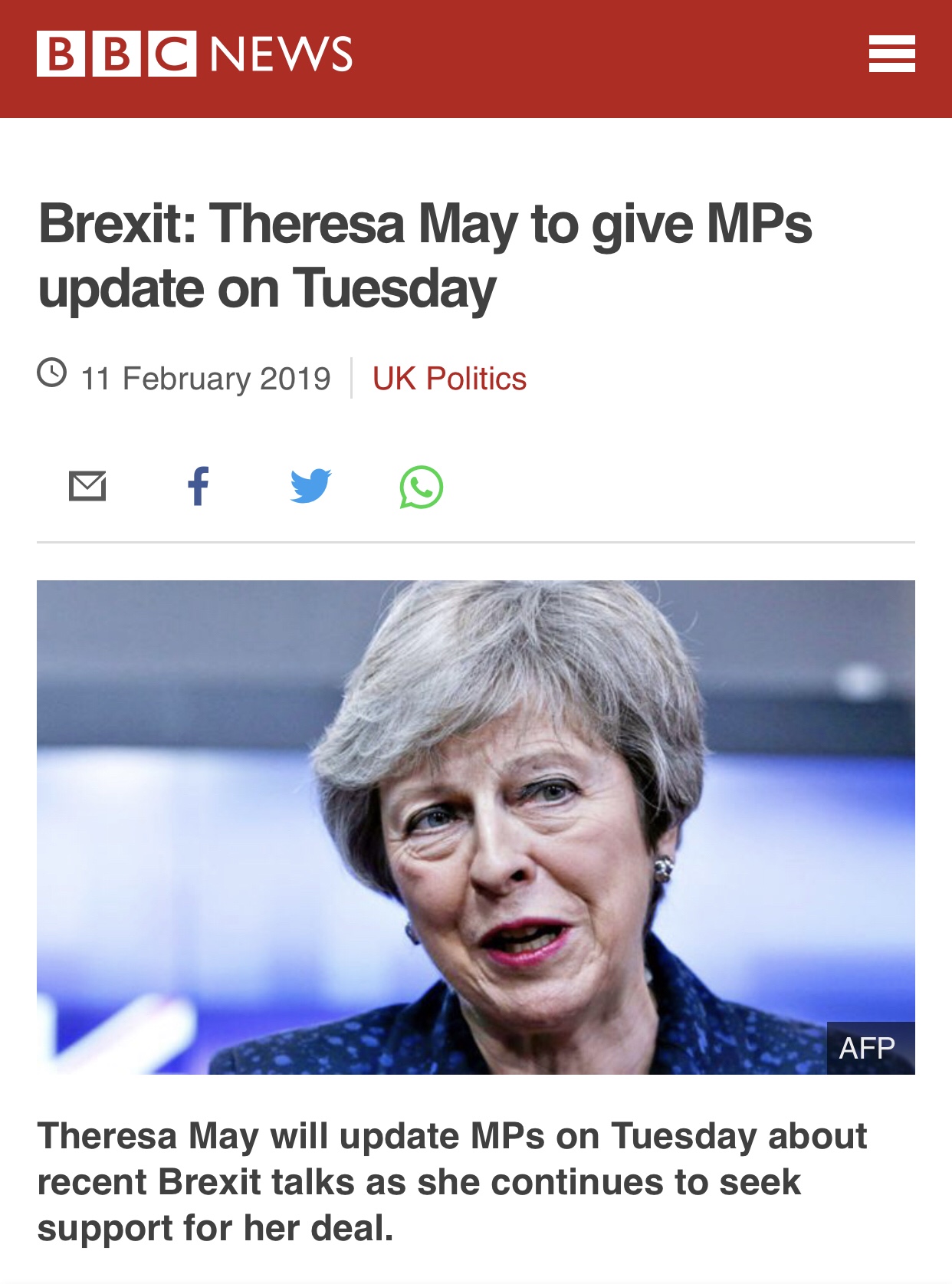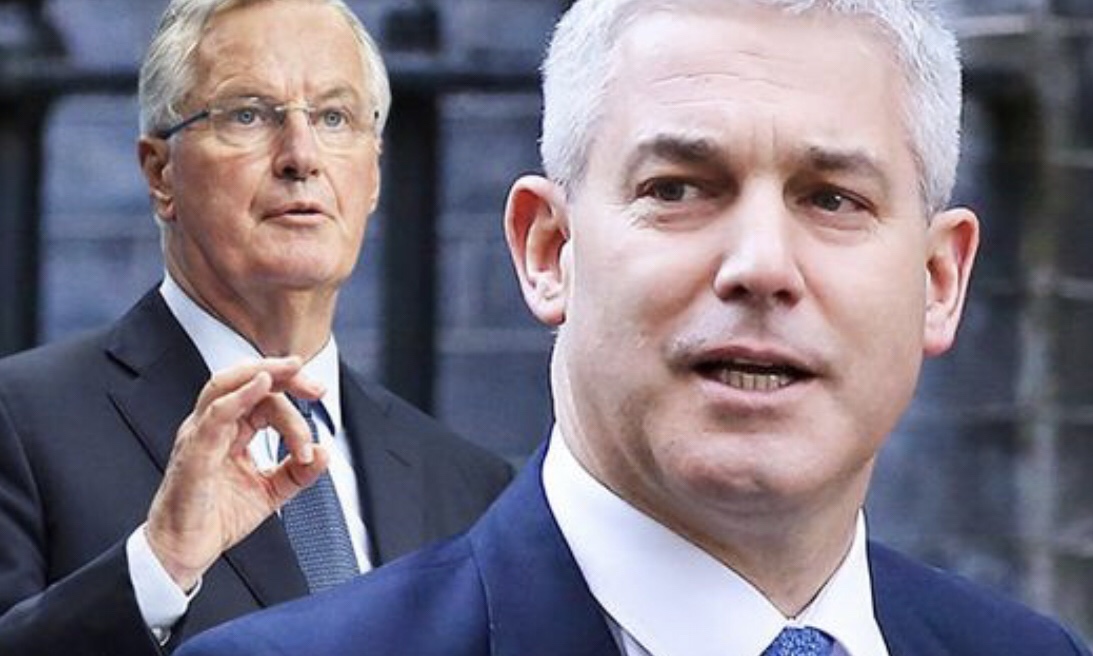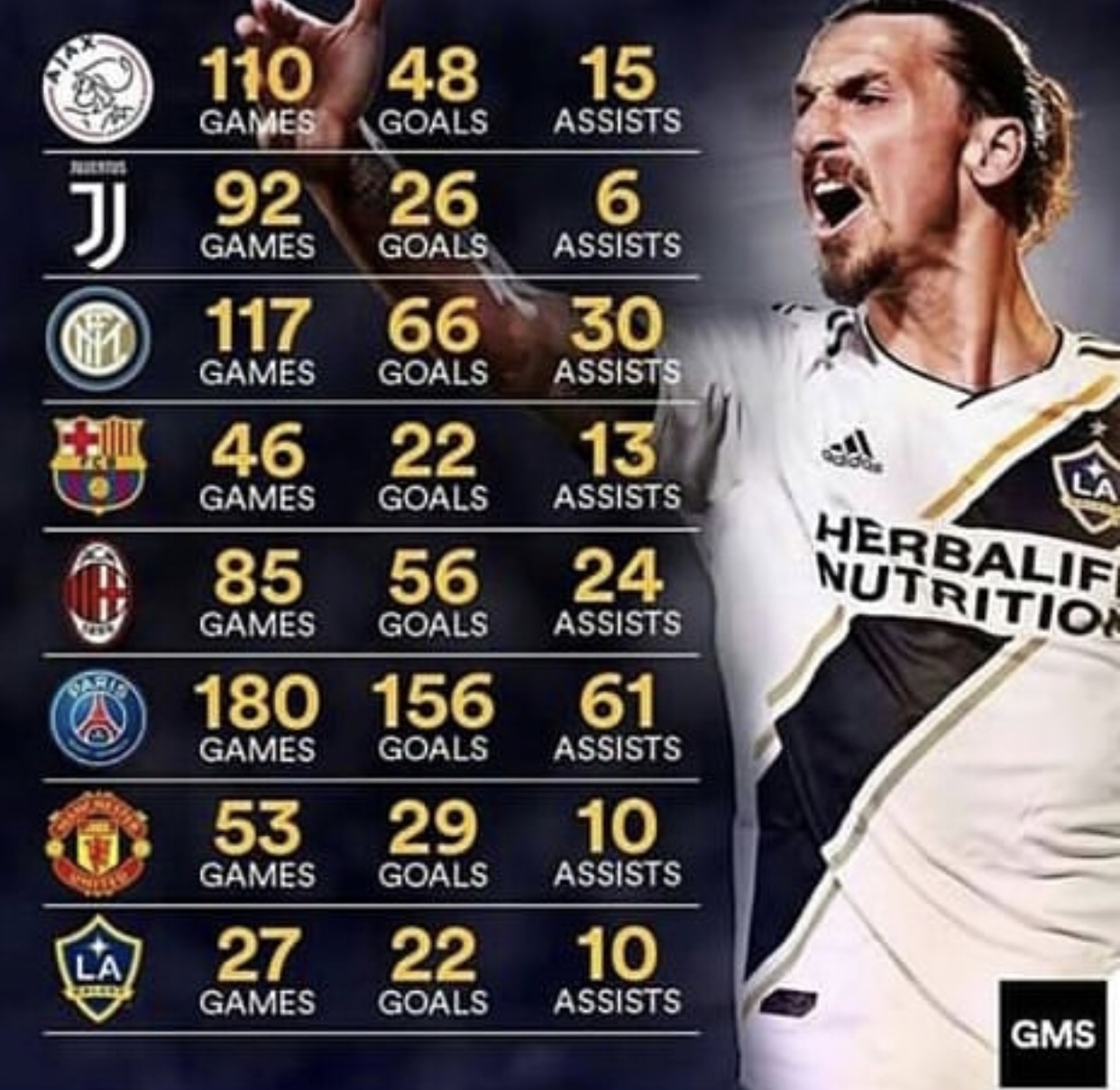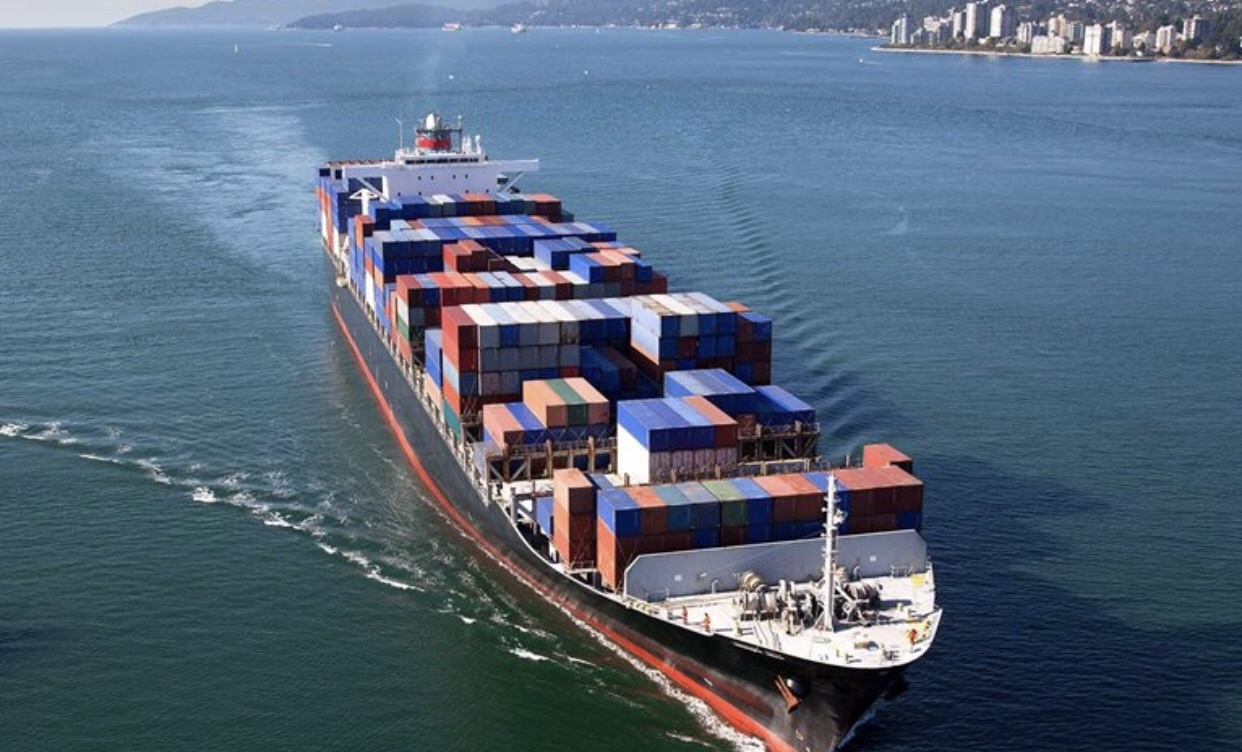Theresa May will update MPs on Tuesday about recent Brexit talks as she continues to seek support for her deal.
She visited Dublin and Brussels last week seeking EU agreement on changes to the backstop – the “insurance” policy to avoid the return of visible Northern Ireland border checks.

Last month MPs – who will debate Brexit on Thursday – voted for the PM to find alternatives to the current backstop.
But the EU has said it would not renegotiate the withdrawal agreement.
However, efforts to come up with a solution acceptable to both sides continue.
Brexit Secretary Steve Barclay met a group of Tory MPs working on possible alternatives to the backstop, before he travelled to Brussels and held talks with EU negotiator Michel Barnier.
Following the meeting, Mr Barnier said the talks had been “constructive”, but added it was “clear from our side we’re not going to reopen the withdrawal agreement, but we will continue our discussions in the coming days”.

A statement from the Department for Exiting the European Union said Mr Barclay and Mr Barnier had agreed to further talks “in the coming days”. Their teams would continue to work in the meantime “on finding a way forward”, it added.
Source: BBC News
Time for new season in the Major Soccer League (MLS). Swedish international Zlatan Ibrahimovic will do his second season in the league.
This year Zlatan will be designated player and he has said that the club is going for the title.
 Games versus goals and assists in his career clubs so far
Games versus goals and assists in his career clubs so far
Zlatan has won titles with all his clubs, being one of the most winning players in the history of the game. Hebis also one lf the few players who has scored more than 500 goals in modern professional football.
Last season Ibrahimovic scored 22 goals and had 10 assists in 27 games. How many goals will he score this season?
Seven researchers within McKinsey; Susan Lund, James Manyika, Jonathan Woetzel, Jacques Bughin, Mekala Krishnan, Jeongming Song and Mac Muir have written an excellent report on future value chains.
Global value chains are being reshaped by rising demand and new industry capabilities in the developing world as well as a wave of new technologies.
Even with trade tensions and tariffs dominating the headlines, important structural changes in the nature of globalization have gone largely unnoticed. In Globalization in transition: The future of trade and value chains (PDF–3.7MB), the McKinsey Global Institute analyzes the dynamics of global value chains and finds structural shifts that have been hiding in plain sight.

Although output and trade continue to increase in absolute terms, trade intensity (that is, the share of output that is traded) is declining within almost every goods-producing value chain. Flows of services and data now play a much bigger role in tying the global economy together. Not only is trade in services growing faster than trade in goods, but services are creating value far beyond what national accounts measure. Using alternative measures, we find that services already constitute more value in global trade than goods. In addition, all global value chains are becoming more knowledge-intensive. Low-skill labor is becoming less important as factor of production. Contrary to popular perception, only about 18 percent of global goods trade is now driven by labor-cost arbitrage.
Three factors explain these changes: growing demand in China and the rest of the developing world, which enables these countries to consume more of what they produce; the growth of more comprehensive domestic supply chains in those countries, which has reduced their reliance on imports of intermediate goods; and the impact of new technologies.
Globalization is in the midst of a transformation. Yet the public debate about trade is often about recapturing the past rather than looking toward the future. The mix of countries, companies, and workers that stand to gain in the next era is changing. Understanding how the landscape is shifting will help policy makers and business leaders prepare for globalization’s next chapter and the opportunities and challenges it will present.
1 Global value chains are undergoing five structural shifts
2 One of the forces reshaping global value chains is a change in the geography of global demand
3 The rise of domestic supply chains in China and other emerging economies has also decreased global trade intensity
4 New technologies are changing costs across global value chains
5 Given the shifts in value chains, companies need to reevaluate their strategies for operating globally
You can read the entire article and download the McKinsey report here: Globalization in transition: The future of trade and value chains
Source: McKinsey






You must be logged in to post a comment.